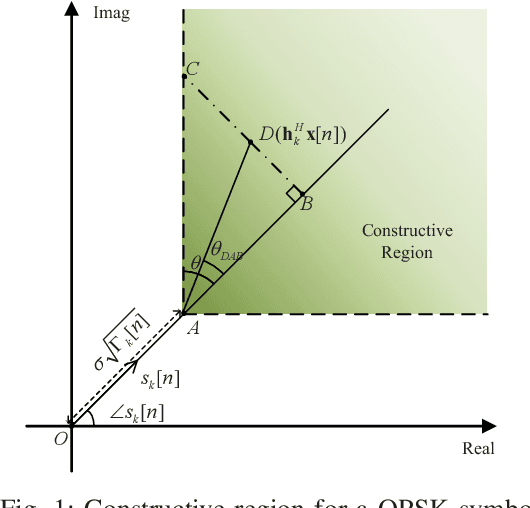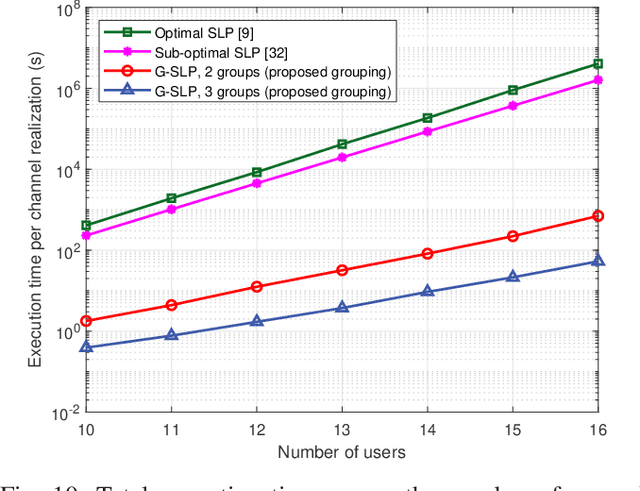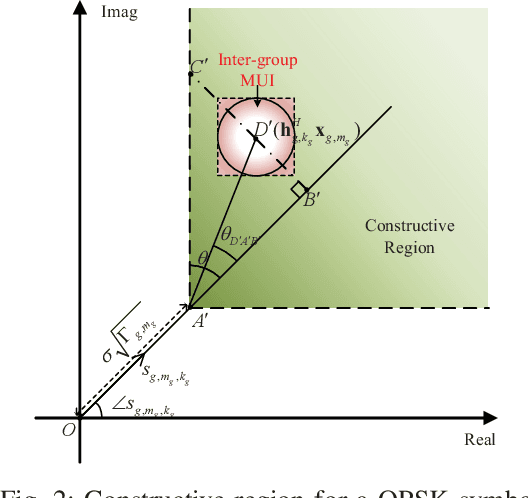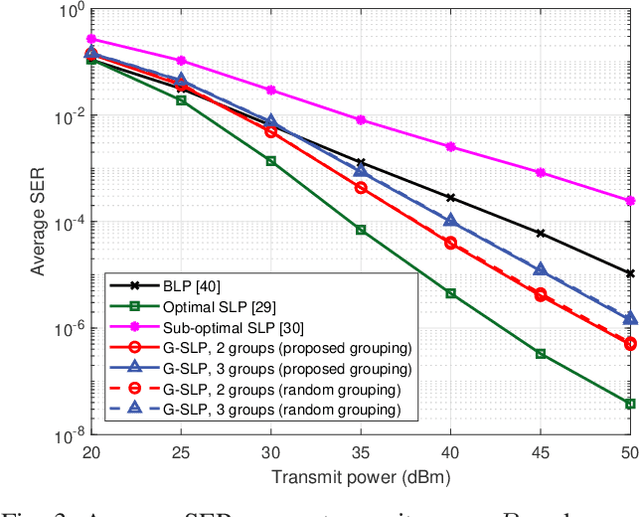Low-Complexity Designs of Symbol-Level Precoding for MU-MISO Systems
Paper and Code
May 02, 2022



Symbol-level precoding (SLP), which converts the harmful multi-user interference (MUI) into beneficial signals, can significantly improve symbol-error-rate (SER) performance in multi-user communication systems. While enjoying symbolic gain, however, the complicated non-linear symbol-by-symbol precoder design suffers high computational complexity exponential with the number of users, which is unaffordable in realistic systems. In this paper, we propose a novel low-complexity grouped SLP (G-SLP) approach and develop efficient design algorithms for typical max-min fairness and power minimization problems. In particular, after dividing all users into several groups, the precoders for each group are separately designed on a symbol-by-symbol basis by only utilizing the symbol information of the users in that group, in which the intra-group MUI is exploited using the concept of constructive interference (CI) and the inter-group MUI is also effectively suppressed. In order to further reduce the computational complexity, we utilize the Lagrangian dual, Karush-Kuhn-Tucker (KKT) conditions and the majorization-minimization (MM) method to transform the resulting problems into more tractable forms, and develop efficient algorithms for obtaining closed-form solutions to them. Extensive simulation results illustrate that the proposed G-SLP strategy and design algorithms dramatically reduce the computational complexity without causing significant performance loss compared with the traditional SLP schemes.
 Add to Chrome
Add to Chrome Add to Firefox
Add to Firefox Add to Edge
Add to Edge